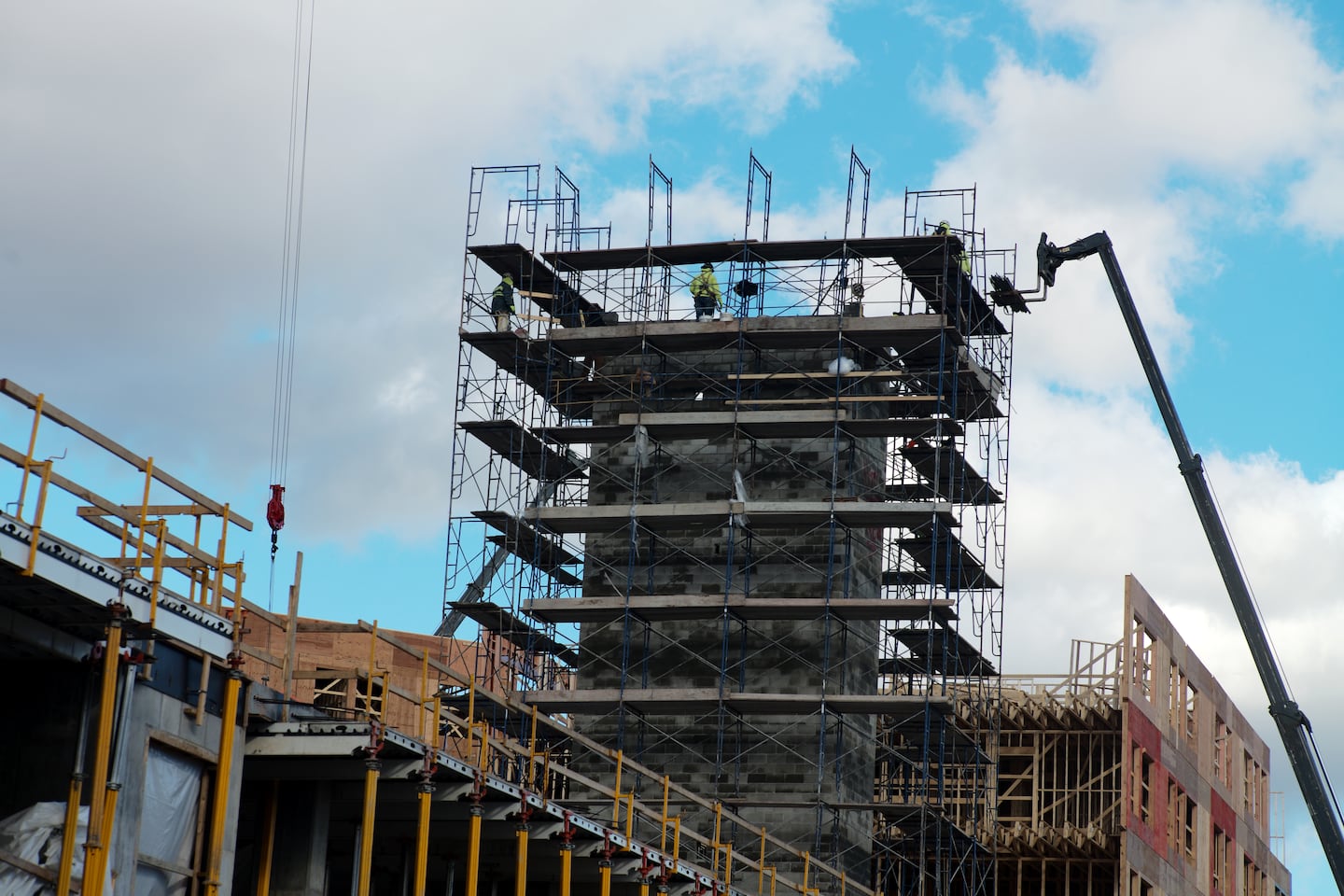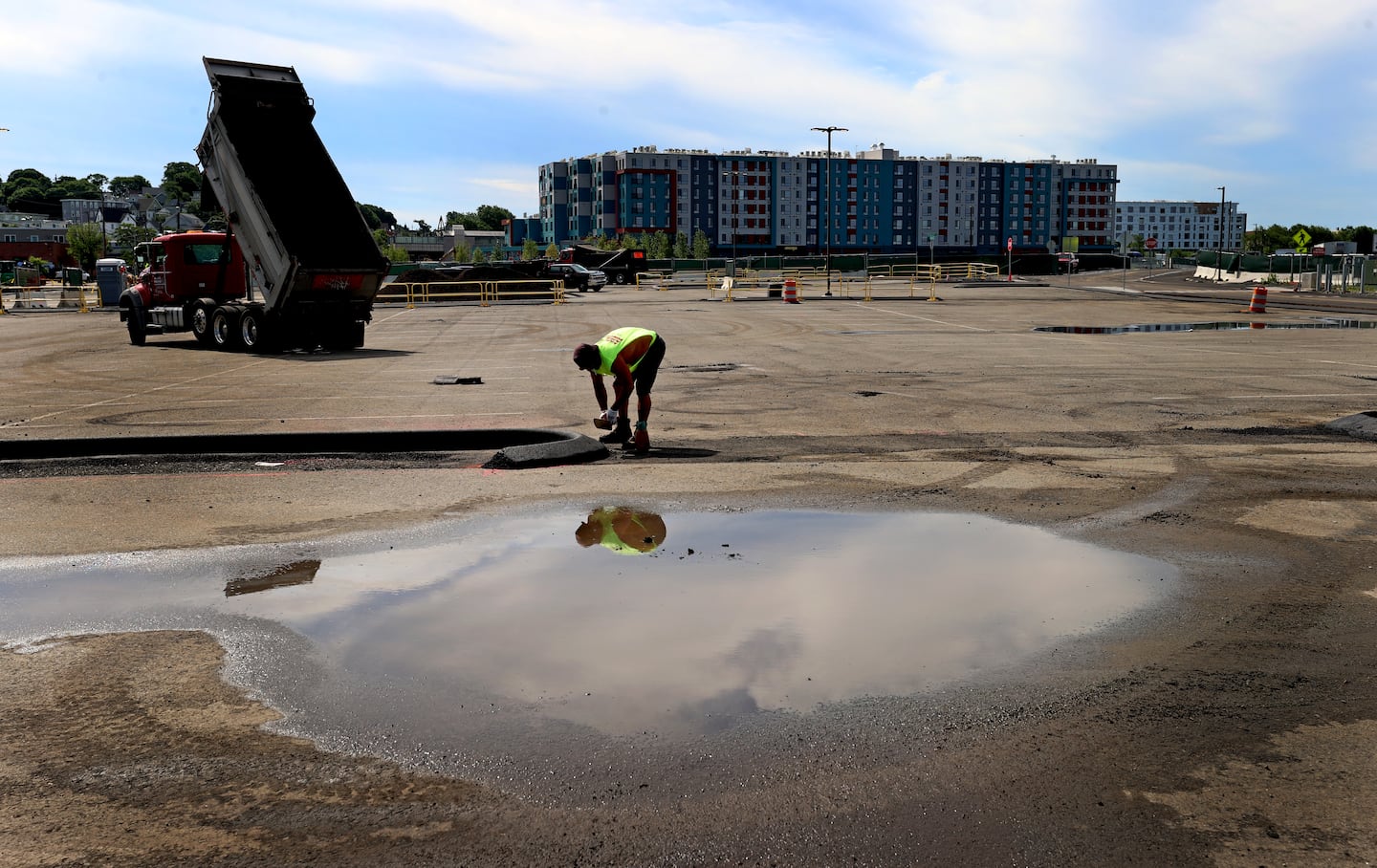“It’s our job to make sure government moves at the speed of business, and cutting these regulations will reduce review times from more than a year to 30 days and supercharge the building of homes across Massachusetts,” Healey said in a statement.
The reforms aim to strike a delicate balance: speed up environmental reviews while still ensuring that new housing developments meet the state’s climate and environmental standards.
Under the changes, projects that meet certain thresholds of density, energy efficiency, and other criteria will be allowed to pass environmental review by completing a basic Environmental Notification Form, instead of the more drawn-out Environmental Impact Report.
That can cut review times from one year or more down to a month, the Healey administration said. The administration estimated that some 70 percent of new housing projects that are subject to environmental review will fall under the shorter review process or be exempt from the process altogether.
“These changes will move critical housing projects from plans to reality much faster and will actually help us ensure that we’re incentivizing the kinds of housing we need the most – dense, energy-efficient, and resilient buildings – while upholding our high environmental standards,” said Energy and Environmental Affairs Secretary Rebecca Tepper.
 An apartment building under construction in Everett in 2023.Jonathan Wiggs/Globe Staff
An apartment building under construction in Everett in 2023.Jonathan Wiggs/Globe Staff
The new regulations will also simplify the review process for certain ecological restoration projects like cranberry bog restoration and partial dam removals, a tweak that pleased environmental advocates.
The regulations will be subject to a public comment period before being finalized.
Healey’s move follows similar efforts in other states to speed up environmental review, which has sometimes been used to stop new housing developments.
In California, for example, the state Legislature this year made key changes to the state’s powerful California Environmental Quality Act, which housing advocates there have long said is used to stymie new housing development. Under the new rules, groups will no longer be allowed to sue on environmental grounds to stop projects in most instances.
Still, the politics of such changes can be tricky. Environmental concerns are frequently cited by opponents of housing projects, and environmental advocates covet the state’s rigorous review process.
At an annual sustainability day at the State House, where dozens of environmental advocates and stakeholders gathered Tuesday, opinions on the changes were mixed.
Maiyim Baron, who serves on the leadership team for Elders Climate Action, said she hopes the new regulations don’t backtrack on progress made on climate and energy rules, including building housing with healthier systems, like solar arrays and electric stoves.
“It seems to me we can do both,” she said.
Rishi Reddi, a policy advocate for Boston-based sustainability nonprofit Ceres, said while she understands the importance of building more housing, she is concerned about the impact on vulnerable communities that have historically seen environmentally-harmful development, such as Chelsea, Somerville, and East Boston.
“A lot of the safeguards address concerns linked to public health,” she said. “This is a balancing act. I don’t want us to give up all the environmental protections we have, even though we need more housing.”
But housing advocates say unfounded environmental concerns have too frequently been used to defeat much-needed housing projects that have negligible environmental impacts.
“We need a way to find ways to streamline permitting processes to boost housing production, while continuing to minimize environmental impacts,“ said Rafael Mares, executive director of Chelsea-based community development corporation The Neighborhood Developers. “This is a step in that direction.”
Samantha Gross of the Globe Staff contributed reporting.
Andrew Brinker can be reached at andrew.brinker@globe.com. Follow him @andrewnbrinker.

